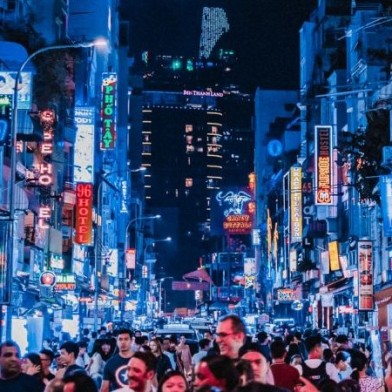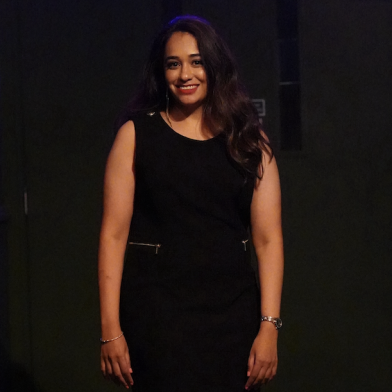For three years, the Covid pandemic prevented many New Zealanders from connecting with their family in Asia. Auckland’s Linh Le, who works in the Auckland office of the Asia New Zealand Foundation, reflects on her long-awaited journey back to Vietnam. This article is adapted from a speech, “The power of knowing WHY”, she gave at Birkenhead Toastmasters Club in February, which saw her win a prize.
I have lived in New Zealand for eight years. In January, I went back to visit my family in Vietnam for the first time after three years of the pandemic.
Before that, I went back home every year. Some years I even visited two or three times, especially when my mother was sick. So, not being able to come home for three years was quite new and challenging for me and my family.
As I prepared to go home, I was quite excited but also had mixed feelings. After eight years in New Zealand, including three full years away from Vietnam, so many things had happened and I must have changed so much. I was afraid that if I was no longer the same Linh of three years ago, my parents might feel they had lost me.
To be honest, I realised that I had become more and more Kiwi in the last three years. I had become calmer, taking things slower than before and I also hated complicating things. I no longer cared about as many things as before. Therefore, I was nervous: would my parents still see me as their little daughter after all these changes?
After 14 hours on the plane plus a 15-hour transit, I arrived in Vietnam. After all the mixed feelings I had before, I immediately felt I was myself again in my homeland. The environment looked so familiar and I started to see a lot of people who looked like me and spoke my language. I was overwhelmed.
Arriving at the airport, I saw my parents and my best friend with a bunch of flowers waiting for me. My dad looked much older; I hadn’t noticed that well when we were in video calls. My mum still looked stunning; my dad must have looked after her well.
I jumped towards my best friend and kissed her cheek. I missed her so much. No, I wasn’t lost. This was a part of me. Just like an automatic machine, I switched into the loud and crazy mode like I always was when I was in Vietnam.
Still, the first two weeks at home in were quite difficult. It seems to me New Zealanders are too nice – we are always polite and say nice things to each other. Vietnamese sometimes just say what they see. “You look so fat in that dress.” “Why you let your skin get so dark?” Some aunties came over and touch my belly as they suspected I might be pregnant, because I looked chubby after being fed by my mum constantly. I tried hard to not be offended.
My mum spent all her time in the kitchen, cooking breakfast, then lunch, then dinner. My dad went to the market every single day. Not like me here in New Zealand, cooking one meal per day, or two, and going to the supermarket maybe once or twice a week.

Linh Le with her parents, grandma and her husband.
Since I came to New Zealand, I have enjoyed walking. Most the walks here are pleasant with beautiful scenery and clean roads. I volunteered to walk from my parents’ house to my grandma’s because it was less than 2km. My mother detained me, “Why do you have walk when we can drive you?"
All sorts of things just shook me up. Sometimes we just get used to the way we act naturally without noticing why. It can be because of the environment, the culture, custom and habit and history.
Having lived in New Zealand for eight years and being a foreigner here helped me develop a habit of questioning everything: “Why?”. It was a good way for me to adapt to the new culture. So, I used the same method when I went back to Vietnam.
I discovered that behind some of the seemingly offensive comments (not all) from my loved ones was the way they showed their care. They noticed the difference in my body, they wanted me to look good (in their standards).
Vietnam came out from the war and poverty not long ago. Making someone full is a way to show how much you love care and love, and my family is no exception. Despite telling my parents so many times that I needed to lose weight, they were still afraid I might be hungry or had not enjoyed a good meal.
During my parents’ childhood, my mum had to walk miles to get to school because she didn’t have any vehicle. They had to climb up to the mountain to pick up wood or fruit to sell for money, even in a very cold day. They were very poor. Hence, walking was seen as labour for them. It reminded them of the hard life they used to have. So now when they can have a car, why would they want to go back to that difficult scenario?
Understanding 'the why' helped me not to judge them easily. Without leaving Vietnam, I guess I would have never had to understand why, but just act naturally like them.
After all, I reflect that my parents haven't lost me to a foreign country. They still have me, just with another way of looking at life, from a different perspective and understanding better about my people from distance. Just like when you stand on top of a mountain, you can see the village better.
I am proud to carry both my Vietnamese and Kiwi sides, which are all helping me to grow as a person. And knowing the WHY always helps.
- Asia Media Centre


